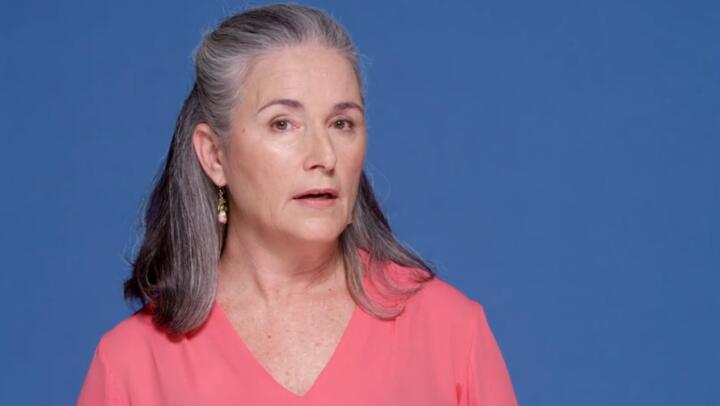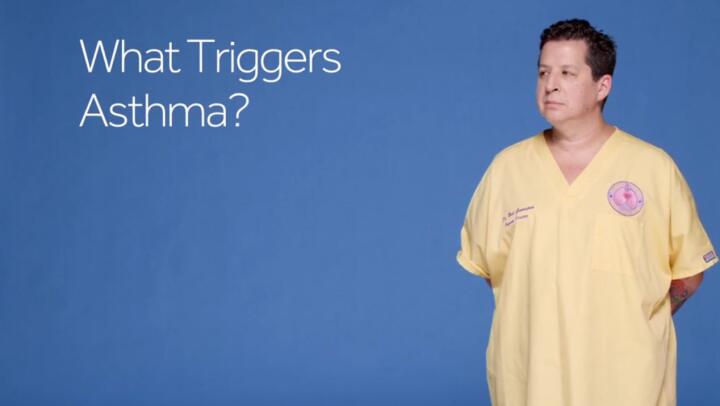
I’m a bit of an anomaly when it comes to asthma. I didn’t start showing symptoms of asthma until later in life; I was around 40 years old when my symptoms emerged. My asthma is classified as “severely persistent” (also known as severe), and is the least common form of asthma.
My symptoms started with wheezing, shortness of breath and bad congestion. My general practitioner started treating me for bronchitis. The medicine my doctor gave me would offer short-term relief, but my symptoms always came back as bad as they were before.
My sickness got to the point where I often had to leave work during lunch to take breathing treatments using a nebulizer with albuterol solution. The doctors would give me the breathing treatment and a prescription for small doses of steroids, and I would go back to work. But each time, my symptoms would start up again within a few weeks.
After numerous failed treatment regimens and months of being sick with what I thought was chronic bronchitis, I finally went to see an asthma specialist. He diagnosed me with severe asthma, and started treating my condition more aggressively. Since my asthma was so hard to control, going to a specialist was necessary to get a treatment plan that worked. For that reason, I recommend anyone experiencing the symptoms of serious asthma to get an expert’s opinion.
When I was first diagnosed, the asthma specialist prescribed a maintenance drug and steroid nasal spray for me to take twice a day; plus, I use a rescue inhaler when I have attacks. I’ve learned that staying on top of my daily medicines is crucial. There have been times when I’ve fallen out of the habit of taking my medication and my health suffers for it. Chest tightness and shortness of breath always sets in when I stop taking these controller medicines.
Thankfully, I’ve never had an attack that put me in the hospital, but I have had a few close calls. One time, when I was visiting a friend with my daughter, my chest and throat suddenly tightened and I began to wheeze. I knew I was about to be in real trouble. I wasn’t far from my specialist’s office so my daughter rushed me there, and he immediately used an intravenous injection to calm my symptoms and stabilize my breathing.
I don’t know what caused that particular attack, but I have become intimately familiar with my triggers over the years. Cigarette smoke is a big one. Being in a room where people have been smoking, even if they aren’t smoking while I’m there, can set off an attack. Strong perfumes and most products that come out of spray cans that use propellants are a few other things that will trigger an asthma attack for me.
Since biological drugs have recently become available for the treatment of severe asthma, I’ve just started receiving a biologic injection once a month. These advanced drugs use my own immune system to fight inflammation. Before starting on the biologic, catching a common cold almost always evolved into a serious problem. Even if my asthma was mostly under control, a mild cold would end up giving me a full-blown asthma attack and often turn into a terrible case of bronchitis. This meant another round of emergency steroids and more doctor visits.
Since I’ve started taking the biologic once a month in addition to my other medications, I rarely have to use steroids when I catch a cold. Since one of the side effects for taking a lot of steroids is bone thinning, a few years ago my doctor recommended I get a scan done to check on my bone density. My scores were terrible for my age, and I found out I had osteoporosis, a disease in which your bones grow brittle and fragile. While we don’t know for sure, I think the years of using steroids to control my asthma brought on the osteoporosis.
With the success I’m having with my new treatment regimen, I hope to continue to improve and have fewer attacks that require steroids. The new advances in the treatment of serious asthma seem to be working for me, so I’m hopeful other people in a situation similar to mine will have more success, too.
Nancy Morris, 67, lives in Forest, Mississippi. She’s retired from the U.S. Postal Service.




















